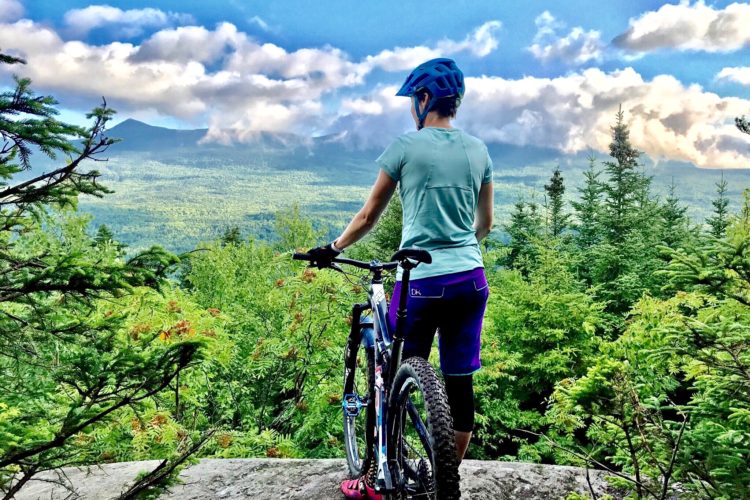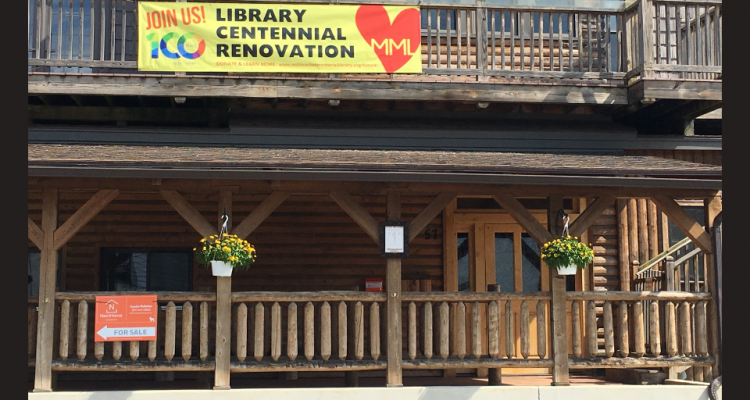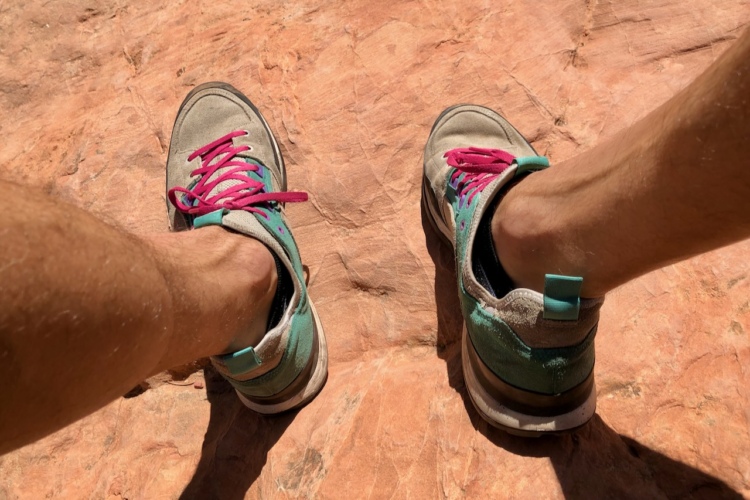
Maine is renowned for its rugged coastline and incredible natural beauty. Deep in the heart of the state stands Mount Katahdin, the end of the famous Appalachian Trail (AT). Katahdin is located in Piscataquis County, the second-largest county by area in Maine, at 3,960 square miles. Despite that massive size, it’s also the least-populated county in the state (and one of the least populated in the Northeastern USA), with just over 17,000 residents. Piscataquis County is truly home to some of Maine’s most rugged wilderness, including the famed Hundred-Mile Wilderness.
An ambitious 84-mile mountain bike trail system is coming to Piscataquis County.
This rugged, wild, and sparsely-populated county could soon be the home of a staggering 84-mile mountain bike trail system. Lucas St. Clair, President of the Elliotsville Foundation, Inc. (EFI), shared that while there are plenty of hiking opportunities in the region, opportunities to ride singletrack on your mountain bike are few and far between. “I love to bike, and do a lot of mountain biking, and started to see what was happening in communities around the country where people were really upping the game with the quality of trails that they were building, building more machine-built trails and a variety of different ability levels,” said St. Clair. He “saw that that was lowering the barrier for entry for a lot of folks, and the community were getting pretty stoked about riding, and then also that people were traveling pretty long distances to come and ride a really good trail system.”
When St. Clair realized the impact that mountain bike trails were having across the country, he resolved to take the lead on building bike-legal trails on EFI lands in Maine. This ambitious trail system, known as the “7 Ponds Preserve,” is being built on a 10,000-acre parcel owned by the EFI.



What is the Elliotsville Foundation, Inc.?
The Elliotsville Foundation, Inc. was founded in 1998 by Roxanne Quimby, the founder of Burt’s Bees. “When she sold the company, she created an endowment that the foundation runs off of,” said St. Clair. Since that time, the EFI has been purchasing timberland and managing it for recreation and conservation.
While the Foundation continues to own and manage large swathes of land, they’ve also donated vast tracts to government agencies. In 2016, “to celebrate the 100th anniversary of the National Park Service,” the Elliotsville Foundation donated 89,000 acres of land to create “the newest unit of the National Park Service, Katahdin Woods and Waters National Monument,” according to TPL.org.
The 10,000-acre parcel that will be the home of 7 Ponds Preserve was acquired from “a timber harvesting company when they were done harvesting it,” said St. Clair. “We’ve been letting the trees grow, and then building some trails.”
Yes, letting the trees grow. The EFI operates on long time horizons, and they acquired this particular property about 15 years ago. Only now is it suitable to begin developing recreation opportunities on the land.
A demonstration project has already been completed, but many more miles are planned.
The EFI has just completed a demonstration project to give local residents a taste of what the trails will be like. IMBA Trail Solutions has completed construction of about a mile and a half of “pretty easy” trails. “People can come out and check it out and ride it, but it’s just a real entry point for folks,” said St. Clair.
While only 1.5 miles are complete so far, the EFI has already spent “a couple of years of planning with IMBA.” This is just the start of what could be one of the most ambitious trail building projects on the East Coast.
As for the character of the planned trails, “overall, those are going to be a lot of cross country-style trails kind of slowly climbing and [descending],” said St. Clair. They aim to build trails for a range of skill levels, “so people will be able to get out on an e-mountain bike for the very first time, they can ride trails and feel pretty comfortable.”
Even though the trails may be cross country-oriented, there’s plenty of elevation to work with on the property — roughly 1,500 to 2,000 feet, per St. Clair’s estimate. “We want to have some kind of vistas built in, so there’s some payoff for the climbs with nice views. There’s several ponds on the property. So we wanted to get folks out to some of the spots that we think are pretty beautiful.”



And estimated completion date for the full build-out is currently uncertain.
Going from 1.5 miles to 84 will be a long process, and at this time, St. Clair is uncertain how long the full build-out will take. “I think that we’ll be able to have a significant amount of rideable trails in the next couple years… an hour of good riding probably in the next year or two. My hunch is that we’ll have probably have well over a dozen miles of mountain bike trails […] by year three, at least. That’s my own kind of personal goal.”
When speaking about total mileage, St. Clair shared the age-old adage that riders are willing to drive an equivalent number of hours to reach a trail system as there are hours of singletrack to ride. So, if there’s one hour of trails to ride, mountain bikers will travel from an hour away. But if it takes, say, 15-20 hours to ride 84 miles (once you factor in backtracking to hit all of the trail segments), at that point 7 Ponds Preserve could draw riders from all over the eastern half of the USA and Canada.
Ultimately, the completion date will be largely funding dependent. “Right now, we’re funding it ourselves, but we don’t have a budget that’s big enough for us to do it all in a couple years,” said St. Clair. “What we hope to do is […] prove the concept. Like, ‘check this out. These are pretty sweet trails. We can do more of them, or we can do it faster, if we have partners.’ So we hope to be able to have some state money, potentially. We’ve got a $30 million trail bond on the ballot this year. If that passes by the voters, we hope to be able to apply for some of that funding.”
While it’s still early days for the 7 Ponds Preserve, the future is bright for this ambitious project. Having an endowment that owns a massive tract of land, which can then turn around and fund an expensive, long-term trail construction project, may be the ultimate MTB trail development power move. We can only hope that more organizations similar to the EFI will begin expanding mountain bike access in other corners of the USA.





















3 Comments
Nov 12, 2024
Nov 12, 2024
Nov 12, 2024